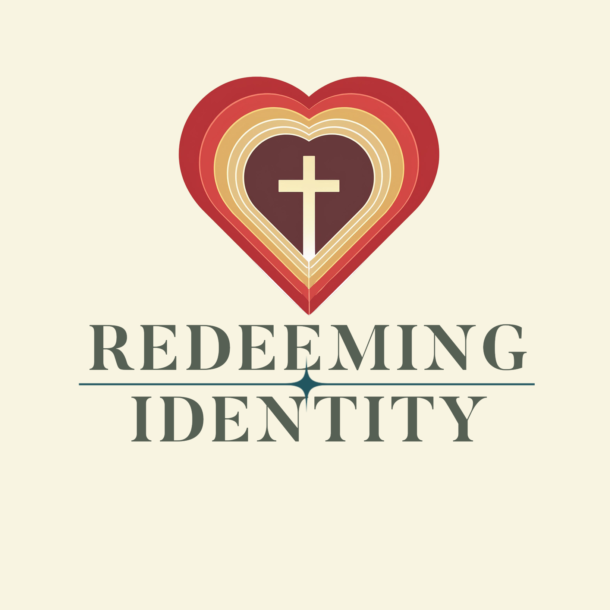Redeeming
“Identity”
National Observation Months
In the United States, specific days or periods of time can be declared for public observation to honor, commemorate, or celebrate a social cause or ethnic group. These are not considered “federal holidays,” where government offices will close. Instead, these are designated to provide the opportunity to learn more about the people, history and current experiences of these groups, which have overcome different types of oppression.
One of the first groups honored with a month to recognize their struggle was African Americans. First recognized in 1976 by President Ford, February was designated as Black History Month. Since then, most other ethnic groups have had a month appointed for them.
Can you identify which months have been appointed to recognize each of the following ethnic groups?
- American Indian Heritage Month
- Arab-American Heritage Month
- Carribean-American Heritage Month
- Hispanic Heritage Month
- Jewish American Heritage Month
The answers are found at the end of the article.

In addition to the months that remember the history and cultures of different ethnic groups, there are other groups that are singled out with a national month. Centered around International Women’s Day, celebrated on March 8, the whole month of March has been designated as National Woman’s History Month. The month of October is designated as National Downs Syndrome Awareness Month, to remind us of this special population within our communities.
One of my favorite national month designations is the month of July, which is National Ice Cream Month. Not that I need a reason for ice cream, but it’s a sufficient reason to have ice cream throughout July. It would be unpatriotic to not have an extra scoop.
National “Identity” Awareness Month
The importance of identity in the life of an individual can’t be overstated. Our identity directly influences everything that we think, feel, and do. Because of its importance, there should be a national month focused on the awareness of our identity.
The closest that we get to a celebration of identity is the month of June, which has been declared National Gay and Lesbian Pride Month. In many areas, this has been expanded to include more groups such as LGBTQ+ Pride Month. In this month, the recognition and celebration of individual identity is a focus, especially from a world’s perspective.

Many that join in the celebrations during this month would boldly state that these are celebrations of individual identity, where people can be whoever they believe they are. In this case, they are celebrating the prevailing perspective of identity, expressive individualism. This perspective on identity is summarized by the view that identity isn’t something that you need to find or discover, because there is no “true” identity for you to find. George Bernard Shaw expressed this perspective, “Life is not about finding yourself. It is about creating yourself.”
With this perspective, the goal of expressing our identity, becoming ourselves, is asserting our individual desires, expressing our feelings, and fulfilling our dreams in the ultimate attempt to find happiness. Our quest for individual expression should be celebrated, without regard to what anyone says or to the good of family and people.
Redeeming the Meaning
One of the goals of Redeeming Identity is to redeem the meaning of the term “identity.” The concept of redeeming contains the idea of actively working to regain possession of something that was taken. We are working to redeem the meaning of “identity” from the way it has been corrupted in our modern world back to God’s initial intention.
Over the years, several terms and symbols have had their meaning altered from their original intent. The initial appearance of a rainbow in the Bible occurred after the flood as a sign to remember God’s promise to never destroy the earth in the same way again. Throughout the month of June, rainbows will be displayed in multiple ways to indicate the acceptance of differences in individual expressions of identity across the LGTBQ+ groups.
In the same way, the use of personal identity and the different expressions of identity during the month of June recognize and celebrate the specific perspective of expressive individualism. In contrast to the modern perspective of expressive individualism, there is the Biblical perspective. The importance of identity is the one aspect that both the modern and Biblical perspectives agree that it is central to everything pertaining to who we are. The Biblical perspective of the source of our identity is what significantly differs from the current perspective. If we want to experience the flourishing and authenticity we desire, it will only be attained when we recognize and submit to God’s design for identity, when our perspective and meaning of identity has been redeemed.
![Genesis 127 [widescreen]](https://redeemingidentity.com/wp-content/uploads/2024/06/Genesis-127-widescreen.png)
Identity’s Initial Design
From the beginning of creation, God created us to be image-bearers of Himself, reflectors of His identity.
“So God created man in His own image, in the image of God He created him; male and female He created them.” Genesis 1:27
Our initial and primary purpose was to be individual mirrors of who God is. Because of this design, God created us so that we would derive our identity from who He is, from being in relationship with Him.
In the perspective of expressive individualism, we are the only one responsible for the development of our identity. We may receive aspects of our identity from those around us throughout our lives, especially those closest to us, but in the end, we determine who we are. We determine the importance we place on different identity markers, such as ethnicity, gender, culture and society, or specific events. The creator of who we are is ourselves.
This is not God’s plan or design; it is the result of being separated from God because of the decision to rebel against God’s design. Since we do not have a relationship with God, starting at birth, we are unable to derive who we are from Him alone. From birth, others define who we are and who we are supposed to become, corrupting our identity. We start out with a corrupted identity, because of our sin nature, and it becomes even more corrupted as we desperately search for one that results in the fulfillment that we desire.
Expressive individualism is not the solution to living authentically and finding fulfillment, but the path that will only lead away from that outcome.
The Journey of Redemption
For those of us who have recognized the truth of our corrupted identity, hearing God’s call to repentance, and accepting His forgiveness through faith in Jesus, we are now on the journey of redeeming our identity. It would be nice to state that at the moment of salvation our previous corrupted identity is gone, and we now live out of a new identity, the one that God created us for. The problem with this is that it’s not true or Biblical. From the moment of salvation, we are now on a journey of discovery of who God created us to be and submitting to His will, not our own.

From God’s perspective, in eternity, He has completed the transformation of our identity, so He can call us what He has created us to be. The challenge is that we are not yet in eternity. We have spent our lives developing and living out of a corrupted identity that consistently led us away from Him and His will for us. In our salvation, He has started the transformation of who we are, by changing our principles, perspectives, purposes, and priorities, but the transformation is not yet completed.
This is the other purpose of Redeeming Identity, to call God’s people to the journey of transformation that God has already started and wants to continue in each of us. We work in cooperation to put to death the old identity so He can replace it with the new. He points out to us the old false truths (principles) that we believe, which we need to replace with His truth. We learn to replace old ways of seeing our circumstances (perspectives) with viewing them through God’s perspective. Instead of wanting to express our identity (purpose), we are given new desires that reflect who He is. Our priority is to glorify Him, above everything else.
These transformations of who we are do not come automatically, but through following and submitting to Him and His work in our life. God is the one that created us and knows us better than we know ourselves. He knows what we each need to work through in this process of redeeming our identity, so we can experience all that He has for us.
Celebrate True Transformation
During the month of June, we will hear a lot of transformation stories where individuals celebrate that they are living out of their authentic self. They boldly and happily celebrate their expression of freedom to everyone that will hear. I do not doubt their sincerity, however they are on the same path that we all walked when we were separated from God, groping around in the darkness for our identity- our corrupted identity.
The transformations that we should strive for and celebrate are those that bring us closer to who God created us to be. The angels celebrate when one person gets saved, because it brings them back into a relationship with God, leading to the redemption of who they are. As we faithfully follow Him, putting to death the old identity and replacing it with God’s identity for us, these are the transformations that need to be celebrated.
None of us have arrived, as long as we are here on Earth. The question is where are we in the process that God has for us? Wherever you are in the process, we want to join you in it, for God’s glory and your benefit. Let us know how we can help you with your next step.
Answers: November, August, June, September 15 to October 15, May
Your Response
If you would like to know more about receiving the new identity that God offers you, please take some time to hear about God’s Good News.

Time for Reflection
Read Ephesians 1:7
Just like we want to bring the meaning of “Identity” back to its original purpose, what does this verse say was the reason that Jesus came to Earth and died.
The world vigorously celebrates their perspective of identity and individuals expressing their “true” identity. Consider how we should celebrate the redemption that we have received. How does this impact your perspective on worship?
Take some time to watch the live performance of the worship song This is the Reason I Sing.
Does remembering God’s redemption cause to you want to worship?
Pass it on!
If God has used this article to encourage or challenge you, please take some time to share it with others by sharing it on your facebook or other social media site. Adding comments to the post also let’s us know what you are thinking about what God is teaching you. Also, please let us know how we can continue to help you discover who God is and who He created to you be.



0 Comments